Weatherability Evaluation
Weather Meter Tests
Weather meter tests are performed to evaluate deterioration due to sunlight (particularly ultraviolet radiation).
- Tests performed to evaluate deterioration due to sunlight (and particularly ultraviolet (UV) radiation). It is possible to evaluate the weatherability of samples with an acceleration factor of several times to 100x that in normal outdoor exposure by also artificially reproducing outdoor conditions such as heat, rain, wind, etc.
- JFE-TEC has a line-up that includes the following 3 types of weatherability testing machines, which can be selected to suit each client's needs.
- Objects of weatherability evaluations include solar cell modules (solar cell panels), painted steel sheets (prepainted and coated sheets), plastics, building materials, printed materials, rubber, etc.
Sunshine Weather Meter
- The sunshine carbon arc type weather meter is the standard accelerated weatherability test in Japan. Test methods are provided in many standards, beginning with JIS and ISO.
- Long test results are available.
- The acceleration factor is on the order of several times to more than 10x that in normal outdoor exposure.
-
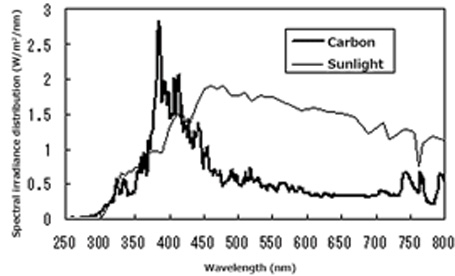
Fig. 1 * Comparison of spectral distribution
of sunlight and sunshine carbon arc.
*Source: Technical materials of Iwasaki Electric Co., Ltd.
"Current status of accelerated
weatherability testing machines" -
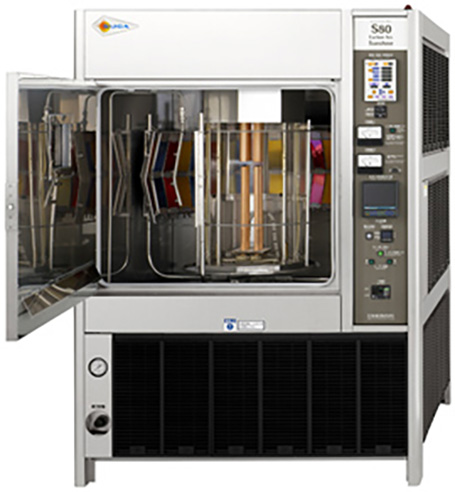
Sunshine weather meter
Super Xenon Weather Meter
- Enables testing under conditions closest to the spectral distribution of sunlight by utilizing a xenon lamp and filter system.
- Conforms to JIS K 5600-7-7: Testing methods for paints, Part 7 Long-period performance of film - Section 7: Accelerated weathering and exposure to artificial radiation (Exposure to filtered xenon-arc radiation).
- Acceleration factor is on the order of 10-30 times faster than normal outdoor exposure.
-
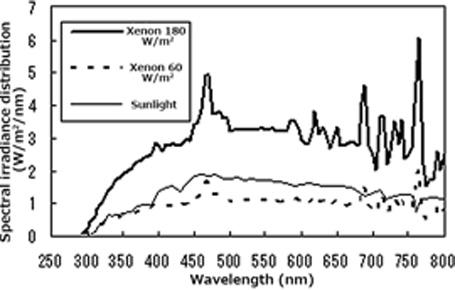
Fig. 2 * Comparison of spectral distribution
of sunlight and xenon lamp
*Source: Technical materials of Iwasaki Electric Co., Ltd.
"Current status of accelerated
weatherability testing machines" -
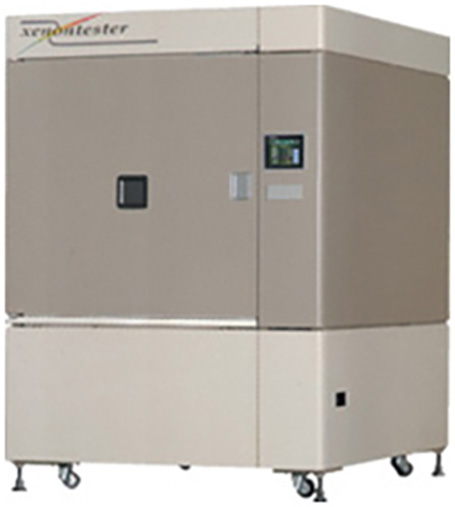
Super xenon weather meter
Metal Halide Weather Meter
- The metal halide lamp has a UV intensity approximately 20-30 times that of natural sunlight and has an acceleration factor approximately 100x that of outdoor exposure.
- Suitable for cases where quick evaluation of weatherability is desired.
-
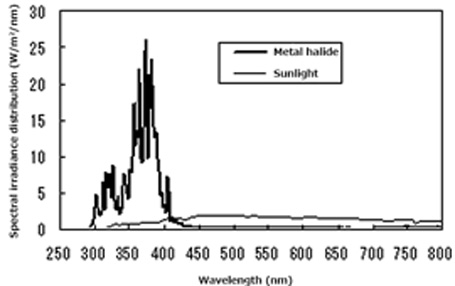
Fig. 3 * Comparison of spectral distribution of sunlight and
metal halide weather meter
*Source: Technical materials of Iwasaki Electric Co., Ltd.
"Current status of accelerated weatherability testing machines" -
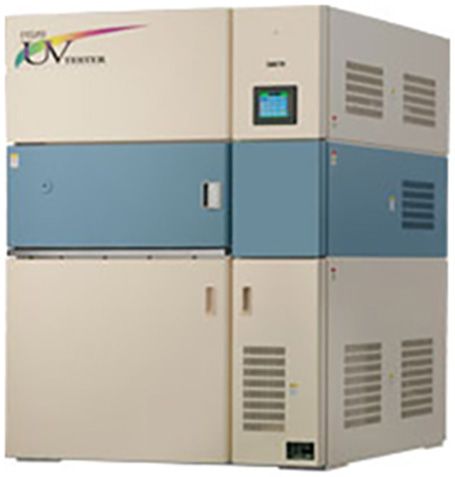
Metal halide weather meter


